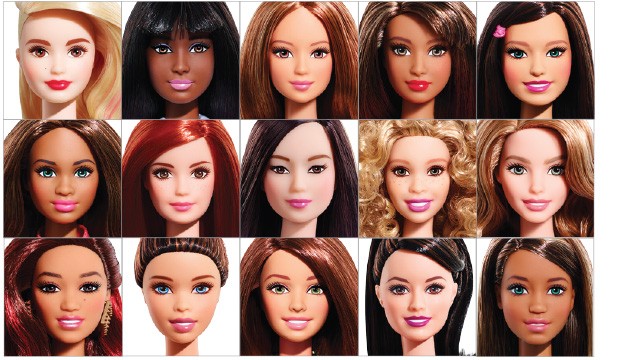

Courtesy of Wikimedia Commons
Growing up with Santa, fairy tales and a huge imagination, anything is possible as a child. Playing “pretend” is typical for most kids, and one of my favorite things to do when I was a kid, was to play with Barbie dolls.
Every birthday and every Christmas, one of the toys that I asked for most was the newest Barbie to play with and to add to my collection. My play time with dolls are some of the most irreplaceable memories of my childhood.
This November, Mattel will release their first ever interactive doll with the capability to have a two way conversation, Hello Barbie.
Pressing a button on her belt prompts the toy to ask a question, and then record the response with an embedded microphone. The response transmits to cloud servers. This has been made possible by Wi-Fi and speech recognition technology.
According to the New York Times, “Hello Barbie is by far the most advanced to date in a new generation of (artificial intelligence) toys whose makers share the aspiration of Geppetto: to persuade children that their toys are alive — or, at any rate, are something more than inanimate.”
My sister and I would play with dolls for hours, and never experienced any problems pretending that our toys were alive. The key of being a child with imagination is to create that dialogue for your doll, and engage with others to do so.
Because Hello Barbie can have full conversations with a child, it seems imagination is being discouraged for future generations.
For psychologists who study the imaginative play of children, the primary concern is that a conversational doll might prevent children, who typically personify toys without technology, from imagining wildly enough.
‘‘Imaginary companions aren’t constrained,” psychology professor at Wellesley College Tracy Gleason said. “They often do all kinds of things like switching age, gender, priorities and interests.”
Mattel, rather than kids, ultimately controls what she can say.
‘‘She is who she is,’’ Gleason said. ‘‘That might be a lot of fun, but it is definitely less imaginative, child-generated and truly interactive than someone with whom you can imagine whatever you want.’’
It is expected that a toy that can befriend a child is likely to be a commercially successful one. A child will be able to consider this doll a friend rather than a toy.
This could potentially incline children to socialize less because they already have a friend to talk to at home. We have no idea what this can do to a child’s mental health and how it can affect them in the long run as teenagers and young adults.
“Well that’s great, maybe just a tiny bit more work, maybe we can squeeze the very last drop of creativity out of childhood, and allow the adults and corporations to direct every second of it,” political science sophomore Sarah Maler said. “I loved playing with my dolls and being their voice for them; it really shouldn’t be the other way around.”
Because of the advances of the technology that we have had over the past decade, I expected for toys to advance as well. But, I feel an acute nostalgia and wish that future children will have the chance to truly expand their minds with playtime like I did.
The future is daunting and unpredictable, as technology has consumed our society. Hello Barbie is coming, and there is no stopping it.
Opinion columnist Rebekah Barquero is a print journalism junior and may be reached at opinion@thedailycougar.com
—
“New Barbie takes away children’s imagination” was originally posted on The Daily Cougar
